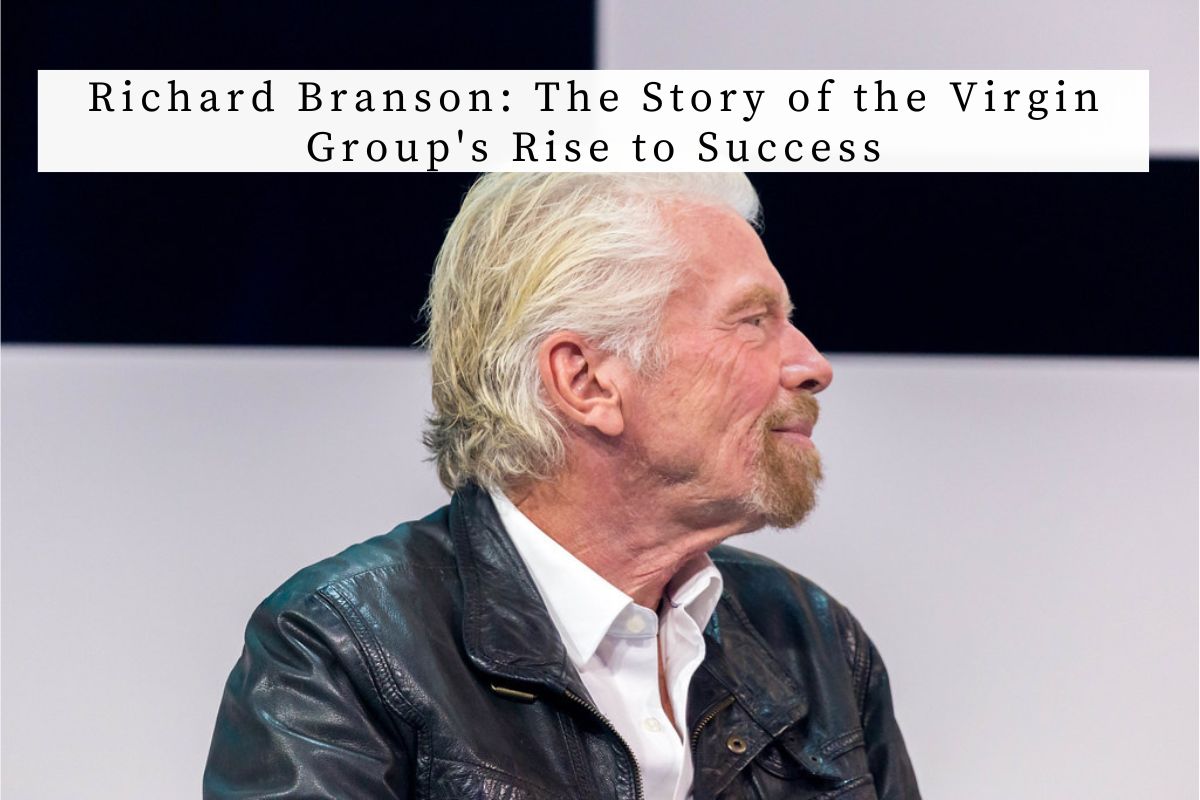Table of Contents
ToggleRichard Branson and the Birth of the Virgin Group
Richard Branson, a British entrepreneur, is the founder of the Virgin Group, a conglomerate that controls over 400 companies. What’s interesting is that all of these companies were created from scratch, not acquired and renamed. Branson’s journey to success wasn’t easy, as he suffered from dyslexia and had poor grades in school. However, his headmaster once told him that he would either end up in prison or become a millionaire.
This article explores the birth of the Virgin Group and Branson’s trailblazing innovations that have impacted not only the business world but also society and the environment.
From Student Magazine to Mail Order Records
In 1966, at the age of 16, Branson dropped out of school and co-founded a magazine called Student. While the magazine was popular, it wasn’t generating enough revenue to sustain itself. To cover the magazine’s expenses, Branson started selling music records via mail orders. He eventually saw the potential of selling records by mail order and focused full-time on the business.
The Birth of Virgin Megastores
In 1971, postal workers went on strike, causing Branson’s mail order business to suffer as all the records were delivered using mail. Branson had no option but to sell records face-to-face, so he opened his first record shop on Oxford Street, which became the foundation of the record chain known as Virgin Megastores.
Tubular Bells: Branson’s First Million
Using the money earned from the record shop, Branson started Virgin Records in 1972. He planned to get a countryside estate and convert it into a recording studio where artists could live and enjoy the countryside to make good music. Branson bought a country estate north of Oxford and named it the Manor Studio. In 1973, Virgin Records released its first album, Tubular Bells, which was a slow hit. It gained attention when it was featured in the movie The Exorcist and sold over 10.7 million copies in the UK and an estimated 15 million worldwide, making Branson a millionaire.
Diversification: Virgin Games, Virgin Books, and Virgin Atlantic
With the money earned from Tubular Bells, Branson started many other companies, including Virgin Games, Virgin Books, and Virgin Megastores. In 1984, Branson called his business partners and told them he was starting an airline. His partners thought he was joking as the record and airline businesses are quite different. Branson named the new airline Virgin Atlantic.
In 1992, Branson sold Virgin Records for 500 million pounds to keep his airline company afloat. It was a painful decision, but Branson believed that if he had not sold Virgin Records at the time, then his airline, Virgin Atlantic, would have gone bankrupt, eventually bankrupting Virgin Records as well.
In 1994, Branson launched Virgin Vodka and Virgin Cola, which he believed were high-margin businesses where he was just selling sugar and water. Virgin Cola initially had great success, as it crushed the can wall at Times Square. However, it started disappearing off shelves, and Branson believed it was not because customers were not buying it but because its competition was willing to go to any length to undermine it.
In 1997, the Virgin Group won the bids for rail franchises Intercity Cross Country and Intercity West Coast and renamed them Virgin Cross Country and Virgin West Coast. This marked Branson’s major play in the British rail network.
In 1999, Branson launched Virgin Mobile, which had operated in over 18 countries as of 2021. The success of Virgin Mobile lies in the partnership between the Virgin Group and an existing mobile network operator in the country.
The Launch of Virgin Australia and Virgin Galactic
In 2000, Branson started a new airline in Australia known as Virgin Blue, which was later renamed Virgin Australia. Virgin Australia is now the second-biggest airline in Australia. Branson is often compared to Elon Musk, and like Musk’s SpaceX, Branson also launched Virgin Galactic in 2004, which is the world’s first commercial space line aerospace company.
Virgin Fuel: Branson’s Focus on Biofuels and Renewable Energy
In 2007, Richard launched Virgin Fuel, which focuses on biofuels and renewable energy. He believed that many businesses, like airlines, trains, and electric powerhouses, heavily rely on energy and a sudden increase in energy prices can cause them to go bankrupt. Thus, Richard proposed creating their own energy using biotechnology. He even worked with former Vice President Al Gore to spread awareness of green energy.
What sets Richard Branson apart is his strategy of expanding during times of crisis. Whenever his businesses face challenges, he either makes new deals or creates new companies, which has helped him emerge bigger than before. Richard Branson’s trailblazing innovations have not only impacted the business world but have also made significant contributions to society and the environment.
Conclusion
In conclusion, Richard Branson’s story is a testament to the power of perseverance, creativity, and innovation in the world of business. Despite facing numerous challenges and setbacks, Branson never lost his entrepreneurial spirit and continued to expand his empire, creating successful companies across a range of industries. His ability to think outside the box and embrace risk-taking has made him one of the most successful entrepreneurs of our time. His legacy is not only the hundreds of companies he has created but also the inspiration he provides to aspiring entrepreneurs around the world.
Additional Resources
To keep learning and advancing your career, we highly recommend these additional resources:
Carlos Slim: The Mexican Billionaire who Controls Over 200 Companies
Peter Thiel: The Mastermind Behind PayPal and Palantir Technologies
Peter Thiel and the 16 Unicorns: The Legacy of Thiel Fellowship
Leveraged Buyout (LBO) Explained in 60 Seconds
Precedent Transactions Analysis (PTA) Explained in 60 Seconds












